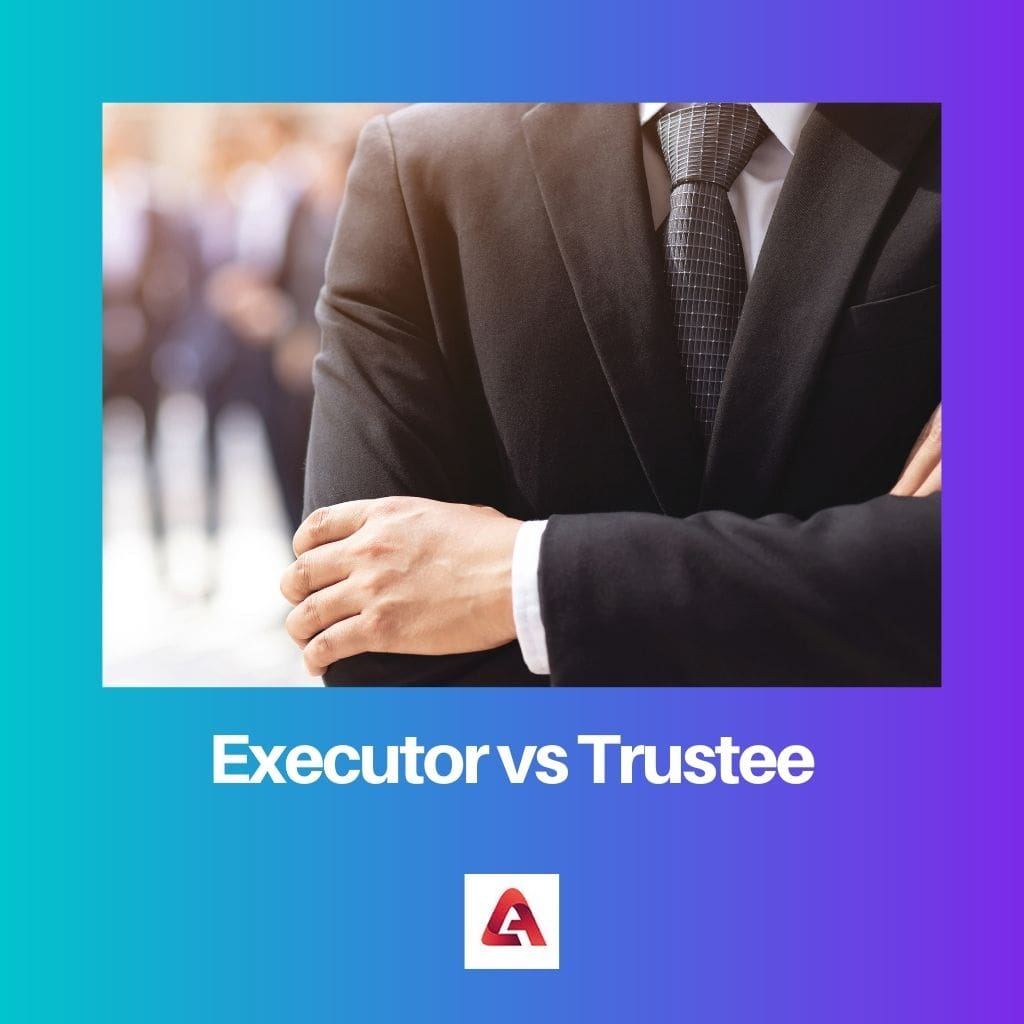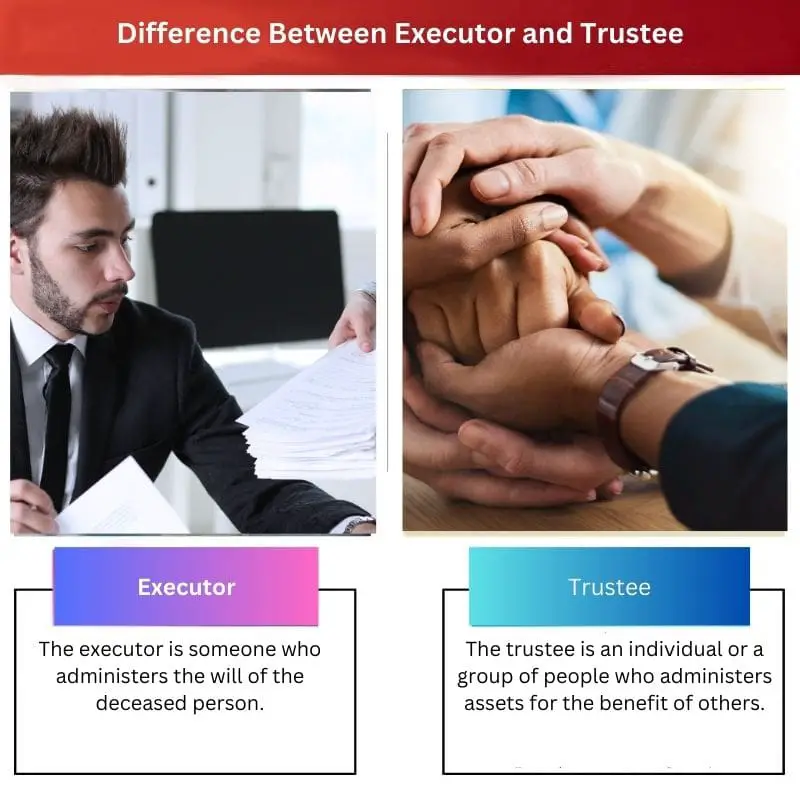Many want assurance that their assets will be managed and dispersed appropriately among heirs after death. Similarly, courts and various financial institutions may sometimes wish to control people’s assets through an independent party for a certain period.
Even though both jobs are related to asset management and disbursement, the nature of these jobs is entirely different.
Key Takeaways
- Executors manage the estate of a deceased person, while trustees manage trusts for beneficiaries
- Executors’ roles are temporary, ceasing after estate distribution; trustees have ongoing duties
- Executors are bound by a will, whereas trustees adhere to a trust document for guidance.
Executor vs. Trustee
The difference between Executor and Trustee is that the executor follows the term of the will and distributes & transfers the deceased person’s belongings to the heirs. In contrast, the trustee follows the time of the trust document and oversees and maintains the asset of the designated trust.

Comparison Table
| Parameter of Comparison | Executor | Trustee |
|---|---|---|
| Meaning | The executor is someone who administers the will of the deceased person. | The trustee is an individual or a group of people who administers assets for the benefit of others. |
| Appointed by | The local probate court. | Individual, court, or financial institution. |
| Duty | Follow the term of the will as practicably as possible. | Follow the term of the trust as practicably as possible. |
| Time of work | After the death of a person. | For charity, pensions and retirement plans, trust funds, bankruptcy cases, etc. |
| Fees | In most cases, the executor does not take payments. | In most cases, the trustee takes agreed-upon fees. |
| Duration of the job | Short. | Long. |
Who is Executor?
The executor is someone who administers the will of the deceased person. The primary role of this person is to execute the last wishes and manage the dead person’s financial affairs.
To become an executor, the person must acquire a copy of the will of the deceased person. The executor must submit the photocopy of this will to the local probate court to gain authority on this matter.
After becoming an executor, the person must maintain the property until it is distributed among heirs. During this period, he should build communication with other governmental agencies and inform everyone about the person’s death.
Most of the time, this job is handled by an attorney. But according to the law, anyone can become an executor. The person must be an adult and have no record of a felony. Most of the time (in minor cases), this job is done without fees.

Who is Trustee?
According to the legal term, a trustee is an individual or a group of people who administers assets for the benefit of others. The trustee holds the legal title until the purchase or the property is handed over to the beneficiary.
There are various purposes for which a trustee can be appointed. Generally, they are set for charity, pensions, retirement plans, trust funds, bankruptcy cases, etc.
The trustee needs to coordinate all tasks according to the provisions delineated in the trust agreement. The trustee also must maintain all the records of transactions and submit taxes on time.
Even though anyone can become a trustee, a financial manager does this job. However, the person must not have any conflict of interest for this job.

Main Differences Between Executor and Trustee
- The duration of the executor job is short, while the duration of the trustee job can be extended.
- In most cases, the executor does not take fees for this task. On the other hand, the trustee’s job can be non-profit, but most trustees take agreed-upon fees or salary for this task.
